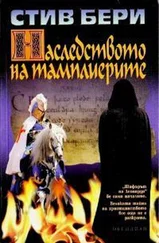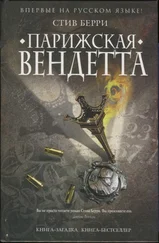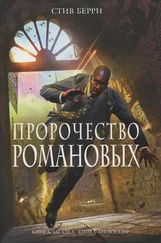Bormann was born in Halberstadt on June 17, 1900, the son of a former Prussian regimental sergeant major who later became a post office employee. He dropped out of school to work on a farming estate in Mecklenburg. After serving briefly as a cannoneer in a field artillery regiment at the end of World War I, he subsequently joined the rightist Rossbach Freikorps in Mecklenburg. In March 1924 he was sentenced to one year’s imprisonment as an accomplice in the brutal vengeance murder of Walther Kadow (his former teacher at elementary school), who had supposedly betrayed a Nazi martyr to the French occupation authorities in the Ruhr.
After his release he joined the National Socialist Party, becoming its regional press officer in Thuringia and then business manager. From 1928 to 1930 he was attached to the SA Supreme Command and in October 1933 he became a Reichsleiter of the party. A month later he was elected as a Nazi delegate to the Reichstag. From July 1933 until 1941, he was the chief of cabinet in the office of the deputy Führer, Rudolf Hess, acting as his personal secretary.
During this period Bormann, diligent, adaptable, and efficient, began his imperceptible rise to the center of power, slowly acquiring mastery over the Nazi bureaucratic mechanism and gaining Hitler’s personal trust. In addition to administering Hitler’s personal finances, he acquired the power to control the living standards of Gauleiters and Reichsleiters, the men who administered the various lands in the Reich. His brutality, coarseness, lack of culture, and apparent insignificance led top Nazis to underestimate his abilities. His mentor Rudolf Hess’s flight to Britain opened the way for him to step into Hess’s shoes in May 1941 as head of the party. Until the end of the war Bormann, working in the anonymity of his seemingly unimportant office, became the fierce guardian of Nazi orthodoxy. He was an arch-fanatic when it came to racial policy, anti-Semitism, and the Kirchenkampf, the war between the churches.
Increasingly, he controlled all questions concerning the security of the regime, acts of legislation, appointments, and promotions, especially if they concerned party personnel. Everything required his approval. By the end of 1942 Bormann was Hitler’s private secretary. Always in attendance, taking care of tiresome administrative details, and steering Hitler into approval of his own schemes. He eventually displaced all rivals, including Goebbels, Speer, and even Eva Braun. Ordered by Hitler “to put the interests of the nation before his own feelings and to save himself,” Bormann fled the Führerbunker on April 30, 1945.
Accounts of what happened afterward vary widely. According to Erich Kempka (Hitler’s chauffeur), Bormann was killed trying to cross Russian lines by an anti-tank shell. Doubts, however, have persisted and numerous sightings of Bormann were reported, beginning in 1946. In that same year his wife, Gerda, died of cancer, though his ten children survived the war. One account says Bormann escaped to South America and settled in Argentina. Other accounts placed him in Brazil and Chile. Nothing was ever confirmed.
Two fascinating people.
Each had played a role in a conspiracy that terrorized the world for twelve long years.
Was there more to their story?
His phone buzzed, interrupting his thoughts. The display indicated the caller to be Juan Vergara. They’d exchanged numbers.
He answered.
“A man was murdered here in Santiago last night. Brutally stabbed to death. He is the same man the chancellor told me about last night. An investigator in her hire. She told me he would be working with you and Senorita Vitt and I should extend him the same courtesies.”
“Where did it happen?”
“In his hotel room. I’m sending you a photo.”
Which loaded onto his phone. The edge of a body filled the right side of the screen. Blood on the floor. To the left of the corpse lay a knife. No. A dagger. He enlarged the image with his fingers. The weapon was black and silver, the SS motto engraved on the blade, runes and eagles etched in the grip. He knew its history. Created by Himmler himself, the knives were bestowed onto each new SS inductee during a ceremony in a Thuringian castle. He’d seen photographs, but never an actual blade.
“Do you know the significance of that blade?” he asked Vergara.
“I have been told. Which is one of two reasons why I’m calling you.”
“And the other?”
“There are things here you need to see.”
“Can’t you tell me?”
“Not on the phone. I will send a plane.”
“All right. At least one of us will come your way.”
“And the other?”
“They’ll stay here and see what else turns up.”
CHAPTER TWENTY-ONE
DACHAU, GERMANY
2:40 P.M.
Marie walked through the gate and entered the concentration camp. Her emotions swirled from fear, to anxiety, to outright anger. The motto that once greeted all new arrivals flashed through her mind.
Arbeit Macht Frei. Work brings freedom.
Another Nazi lie.
She was taking an enormous gamble with this pilgrimage to one of the few remaining remnants of National Socialism. Dachau, particularly, garnered a special place in the national history, since it was the first of Hitler’s murder factories, the model upon which all the rest were based.
Her conversation with Kurt last evening still plagued her. She’d woken several times during the night, bothered by his attitude and her apparent indifference to him. She wondered if she even loved him any longer. More, she pitied him for holding on to such inexplicable anger that so clouded his judgment.
Yet his sentiments were not uncommon.
Theodor Pohl was opening a wound that had never healed. His politics of hate, couched in terms of patriotism, would only send Germany backward. Someone needed to speak out. And at the moment, she was the only spokesperson who could command a national audience.
But the risks were real.
Modern Germans were confirmed pacifists. They wanted no mention of the former wars, either directly or indirectly. By and large they were consumed with historical guilt, bleeding their anguish in rivulets of pride.
But could that wound be mended?
The next couple of days might provide an answer, but the thirty-minute drive north from Munich that she’d just endured seemed to have served as a sobering prelude. Few road signs had pointed the way, as if the concentration camp was better left unknown. Her staff reported that, over the past few years, there’d been a sharp decline in German visitation. The vast majority of visitors to Dachau were either tourists or students. Schoolchildren came simply because German law proclaimed they must, yet Pohl was openly advocating a switch to voluntary school visits, something recent opinion polls indicated nearly 40 percent of the people favored.
Which was another disturbing trend.
She recalled when, at age eleven, she’d made her obligatory visit. Her mother had tried to explain the madness, and she’d reacted with the innocence of a child. Her adolescence was spent in postwar Germany amid a nation in ruins. She’d watched cities rise from rubble and the countryside re-emerge from wholesale destruction.
And the worst of all.
The creation of two Germanys.
One free. The other enslaved. One looking west. The other east. Barbed wire, land mines, and armed guards kept one population contained and the other from doing anything about it.
What a waste. And all for nothing.
She turned her attention back to the scene before her. The day was warm with a low bank of pewter cumulus rolling in from the Alps to the south. The wire perimeter, concrete administration buildings, and watchtowers of the former camp still stood. But the barracks were gone, torched by Allied liberators. All that remained were rectangular gravel plots marking their foundations, arranged in rows side by side, like semi-buried coffins, and one replica barrack rebuilt to illustrate the horror that was Dachau.
Читать дальше












